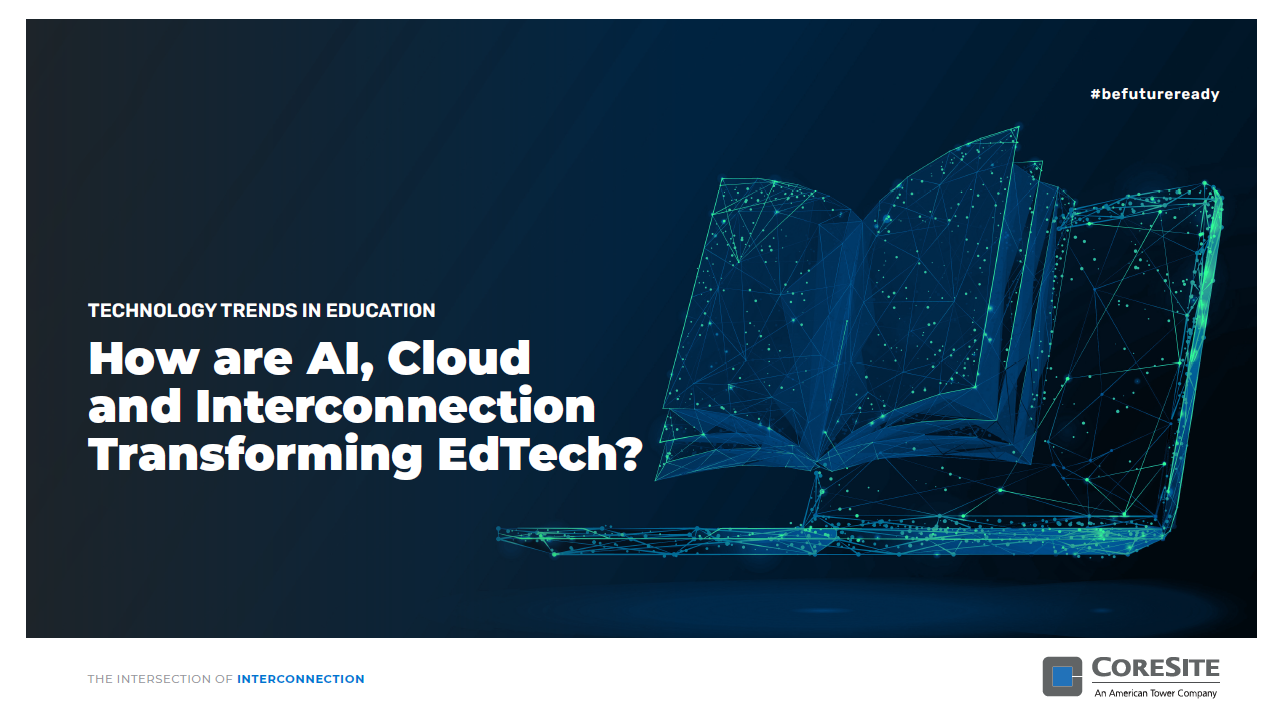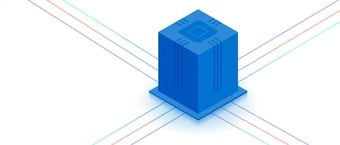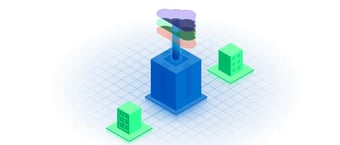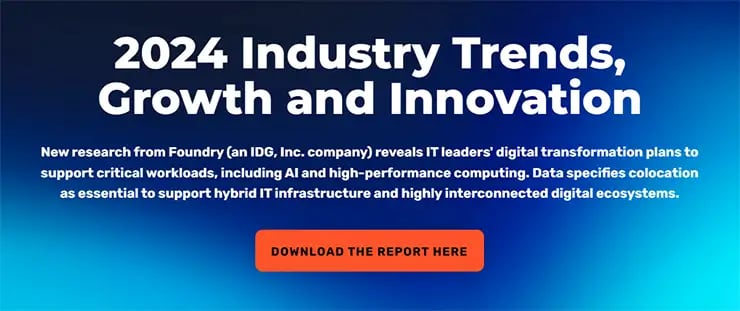
Advancing Educational Missions with EdTech
Many people credit a teacher for providing encouragement or challenges that made a profound difference in their lives. Today, according to a 2020 global survey by McKinsey teachers spend less than 50% of their time interacting with students. What if educators had the time to focus more on mentoring instead of the other time-consuming albeit essential parts of their profession, for example administration and classroom prep time?
Educational institutions carry the burden of having two missions: delivering both educational excellence and fiscal sustainability. Like other industries, doing more with less is the norm, including smaller staffs. Colleges and universities suffer the same shortage of qualified applicants and high turnover rates for service roles as every other industry.1
EdTech’s Triple Threat: AI, Cloud, Interconnection
EdTech is being hailed as the solution to many challenges educators face as well as the financial pressures endemic to the “business of education.” Its roots are in online learning, which was surging in popularity even before COVID. Artificial intelligence, and specifically ChatGPT, is now driving sea change across the entire educational system, including research and development. However, AI is not an island unto itself, to harken back to classic essay assignments. Cloud and interconnection are enabling technologies, with colocation data centers serving as a conduit for data between on-premises data centers and cloud, and providing an environment where many workloads can cost-effectively be deployed.
We Unpack It in the White Paper
My goal with this post is to provide enough detail on what we are discussing in our new white paper, “Technology Trends in Education: How Are AI, Cloud and Interconnection are Transforming EdTech?” to compel you to read and share what you learn with colleagues. Of course, I’m also hoping that you will reach out to learn more about how we can help educators make strides toward accomplishing their missions.
I’ll be following up with another post in which I’ll use the topics we cover in the white paper as a springboard for deeper discussion and provide even more recent information on the rapidly changing EdTech industry.
I encourage you to download it now – it’s offered ungated, no personal information is required.








